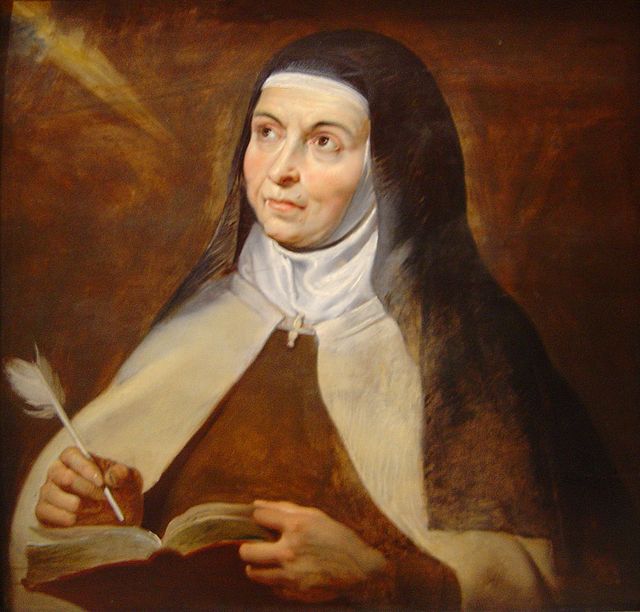The Christian of the Future...
Recently I was reminded of the line from Karl Rahner who said, "The Christian of the future will be a mystic or he will not exist at all." In fact I made note of this line in a recent post. The more that I sit with this thought the more it stirs in me.
While mystic means a number of things it is at least two things. First a mystic is one who has stronger God images and experiences that are personal (as opposed to theoretical) and intimate (as opposed to distant). These personal and intimate experiences and images with God lead to the second characteristic of the mystic: a mystic has more trust in the inward authority that is within each human being (as opposed to putting all trust in outward authorities).
We live in a time where God is not talked about as personal but as more of a "ideal projection" and we also live in a time when outer sources have more authority than inward sources. That is to say we live in a time when we don't trust someone saying, "I know this because it is in the very fiber of my being." Rather we live in a time where one has to prove what is known. (Which is why some religious people get frustrated when a study is published that validates a religious truth known for generations, such as meditation contributes to wholeness or simplicity leads to greater fulfillment.)
So may the rise of the age of mystics dawn soon because I do believe it is the way back to Jesus.
Worship: Less Zoo, More Petting Zoo
The thing about the zoo is that when you go, the main attraction is behind walls or glass. The majestic tiger or the curious mongoose is something that you can observe at a distance. It is something that gives you the impression that you "know" the animals. A zoo is also a place that few people enter with a sense of "fear". Unless you are going to the zoo with Harry Potter, you will not find a rogue snake at a zoo roaming around. And since zoos are set up to be so distant, there is an elevated amount of energy put toward the zoo keepers. We are too distant to the animals so we talk with the zoo keepers who tell us what it is like to have direct encounters with the animals. We rely on a mediator to tell us about the animals.
Things are different for a petting zoo.
First of all, it is clear that you will have a close encounter with the main attraction of the petting zoo. There is no protective glass or barrier keeping the curious animals to come toward you. But perhaps more importantly, most people I have seen enter a petting zoo enter with at least a small amount of nervous energy because they are not sure exactly what can happen. Will a dove descend on them? Will a lamb push up against their leg? Will there be a snake that strikes a bit of fear in them? And since the animals are there in your lap, there is less interest in hearing about the experiences of the animal caretakers. It is clear that in a petting zoo that it is the animals that need the most attention.
Worship needs to really be less like a zoo and perhaps more like a petting zoo. We ought to enter worship with a sense of energy, unsure of what will happen exactly, anticipating a close encounter with the mysteries of God (the main attraction). A place where we desire a direct encounter with God rather than primarily rely on hearing how a direct encounter with God might feel like.
One Path or Many Paths to God? Try No Paths.
It is an age old debate and argument that results in a lot of bald-headedness. One side says there is only one way to God. And that claim make the other side pull their hair out and argue for many paths to God. Which in turn makes the first side pull their hair out and cite scripture of Jesus being the only way. While the other side, point to scripture of universal access to God.
All of this self mutilation of hair pulling is missing the point of the Christian message at Christmas and Epiphany. There is no path or paths from us to God, if there is any path(s) at all it/they come from God to us.
As John S. Mogabgab's poem states:
"God is closer than we think. There is no path to God that is not first God's path is to us."
So before we get all bogged into how many paths there are, lets first and foremost remember and give thanks that we even have the gift of talking about a path at all.

Be the change by Jason Valendy is licensed under a Creative Commons Attribution-NonCommercial-ShareAlike 3.0 Unported License.




